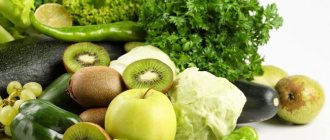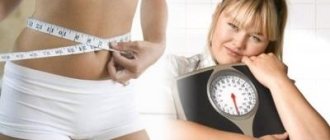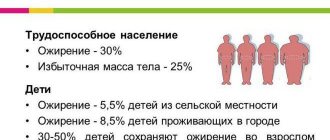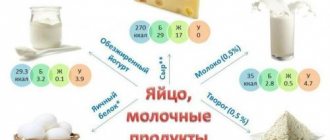It is better to choose complex carbohydrates: products made from wholemeal flour, whole grain cereals, vegetables, legumes, unsweetened berries and fruits. It is recommended to regularly consume apples as they contain polyphenols that promote heart rejuvenation, improve blood circulation and vascular elasticity.
- It is important to drink plenty of fluids - at least 1.5 liters per day.
Try to avoid foods that stimulate appetite: fatty broths, pickles, sauces, smoked meats. This applies to alcoholic beverages.
The reasons that give rise to the question: “How to lose weight for an elderly person?”
The older a person is, the greater his tendency to gain extra pounds. Over the years, most of us gain weight, and there are a number of natural reasons for this.
Reason No. 1. For every 10 years lived, the body reduces energy expenditure by 10%. This is due to the fact that the work of the lungs and cardiovascular system gradually slows down. At the same time, over 10 years, the average person’s weight increases by 10%. Thus, every 10 years of life we gain 10% of our body weight and reduce our metabolic rate by 10%.
Reason number 2, which concerns mainly women. Most women change their figure from pear to apple over the years. This process becomes especially noticeable after menopause: the hormonal background changes greatly during this period, male hormones begin to predominate, and therefore fat deposits are formed according to the male type.
- Recommended articles to read:
- Social services for older people
- Diseases of old age
- Valuable tips on how to choose a boarding house
Reason number 3, psychological . More precisely, not even a reason, but a set of reasons and trends inherent in the lives of most people. For example, with age, a person’s life becomes more routine, a person moves less, his activity in many areas decreases, and food becomes his main pleasure. And overeating sooner or later provides an elderly person with extra pounds and confronts him with the need to lose weight.
Reason No. 4. Genetic programming. Weight gain in old age has a genetic explanation: over the years, the way the human body responds to adrenaline changes. In youth, stress that causes adrenaline to be released into the blood causes a person to lose weight. But adrenaline can harm the tissues of the body, so with age, a protective mechanism for accumulating fat deposits turns on, leading to the opposite effect - a person becomes fatter from stress.
Reason number 5. Diets . It sounds strange, but incorrectly chosen diets, including fasting or other radical measures, in the long term lead to obesity (although situationally they can help you lose weight). Such “shock” diets disrupt metabolic processes, and instead of losing weight, the human body goes into fat accumulation mode in case of hunger strike. During such diets, a person loses a little weight, but immediately after finishing them, he quickly gains it back.
Reason No. 6. As we age, we lose muscle mass, to maintain which the body spends the bulk of the energy received from food.
If the muscles do not grow, but dry out, and the diet and amount of food remain the same, the weight inevitably increases. In older people, these processes are increasingly noticeable.
Why is it so important to control your weight?
As we age, health issues become more important, so women who have reached menopause should control their weight. Here are some compelling reasons to take action on your lifestyle and nutrition.
- excess weight is the first reason for the development of diabetes;
- every extra 10 kg of weight – minus 4 years of life;
- fat, deposited on internal organs, interferes with their normal functioning;
- cholesterol leads to stroke and other health problems;
- obesity contributes to the development of certain types of cancer;
- the joints of the legs and spine of obese people wear out faster;
- Excess weight limits a person's ability to live a full life.
Can you lose weight from Lasix?
People have been trying to lose weight for quite some time with the help of diuretics, in particular Lasix. Taking diuretics is aimed at quickly getting rid of fluid, which gives some weight loss.
The drug, marketed under the brand name Lasix, is a powerful diuretic with the international name furosemide. It affects the tubules in the kidneys in such a way that within half an hour to an hour the volume of urine produced by the kidneys increases many times. This is necessary when there is an urgent need to remove excess fluid from the body (in particular, from the blood) - in case of cerebral or pulmonary edema, hypertensive crises, etc. Therefore, furosemide is an emergency drug. Long-term use of furosemide is prescribed for liver cirrhosis, nephrosis, and edematous heart failure syndrome.
Taking Lasix for a long time can lead to fluid and electrolyte imbalance. Most often it manifests itself in the form of hypokalemia - increased excretion of potassium in the urine. This is a very dangerous symptom, so asparkam and panangin are usually prescribed simultaneously with furosemide.
Thus, the conclusion is clear: taking Lasix for weight loss is dangerous!
Firstly, because of the danger of hypokalemia. Without potassium, normal functioning of the muscles responsible for heart contractions is impossible. Even with a slight potassium deficiency, weakness and muscle pain are felt, and in more serious cases, paresis and flaccid paralysis, and intestinal obstruction may occur. If half the normal amount of potassium is removed from the blood, a person may die due to respiratory and cardiac arrest. Moreover, even if the patient can be resuscitated, the chances of complete restoration of all body functions are very small. Therefore, losing weight with Lasix is a very dangerous decision for an elderly person.
Secondly, due to a critical drop in blood pressure. With increased removal of water from the body, the blood thickens and supplies oxygen and nutrients to organs and tissues worse. This can lead to nausea and vomiting, loss of appetite, digestive disorders, skin rashes, collapse and even fainting, which can result in resuscitation, especially in an elderly person. Therefore, furosemide (under any trade names) is sold in pharmacies only with a prescription from a doctor, and it must be taken in full accordance with medical prescriptions.
Read material on the topic: How the body of an elderly person changes and what to do about it
How to lose weight for an elderly person at home
Doctors agree that it is not only possible, but often necessary, for an elderly person who is overweight to lose weight. Excess body weight exacerbates chronic diseases and organ dysfunction, and often even becomes the cause of new diseases (which could have been avoided). But any elderly person trying to lose weight should be careful and consult with doctors so as not to harm themselves further. The safest option is hospital treatment, but not all older people can afford this.
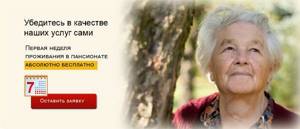
At home, an elderly person can also lose weight if he follows a few recommendations. The main principle is gradualism, that is, the absence of radical changes in diet and exercise. Measures such as frequent fasting days (more than two during the week), fasting, and express diets are definitely not suitable for older people. Losing more than 2 kg in a month is a noticeable stress for the body, which can lead to nervous breakdowns, metabolic disorders and many other vital processes. Therefore, an elderly person does not need to try to lose a lot of weight in a short time.
Read material on the topic: Nutrition for the elderly
An elderly person who decides to lose weight needs to pay attention to the following aspects:
- Diet . Make your food portions smaller than you usually eat. To prevent this from becoming a blow to the body and psyche, eat more often - five to six times a day;
- Method of absorption of food . Food must be chewed as thoroughly as possible so that it is better prepared for digestion in the stomach. Large pieces are processed more slowly, since it takes time for them to be saturated with enzymes, and create a greater load on the gastrointestinal tract, which can lead to diseases of the digestive glands;
- Method of cooking. It will be psychologically difficult to change established methods and technologies of cooking, since they have developed over years and decades, firmly becoming a habit and everyday life. Heavy and filling dishes such as bread, pasta, fatty meat soups, fried potatoes, dumplings, etc. are the main dishes in the diet for many older people. Those who decide to lose weight will need all the willpower and motivation to give up such dishes, replacing them with lighter, leaner and less calorie ones. But after some time, it will become easier for a person who goes on such a diet - the body adapts to food with a different calorie content, new eating habits will form;
- Optimal food . These are, first of all, vegetables that should be consumed daily by every person who wants to lose weight. But old age requires special ways of preparing vegetables, since fiber is poorly digested and absorbed in older people. Vegetables should be stewed, boiled, baked or eaten pureed;
It is best to choose the least fatty (or completely low-fat) dairy products. Some caution needs to be taken with them. Firstly, an excess of calcium can lead to increased leaching from the body. Secondly, many older people have milk allergies and problems digesting lactose. In addition, some researchers believe that consuming dairy products may lead to cancer.
A research team led by Betty Kaan looked at women diagnosed with early-stage invasive breast cancer between 1997 and 2000. All respondents lived in northern California. Scientists have found the following: those representatives of the fair sex who constantly consumed dairy products had an increased mortality rate from cancer. For those subjects who drank one or more cups of high-fat milk daily, the likelihood of dying from cancer in the next 12 years increased by 50%.
For an elderly person who has decided to lose weight, it is advisable to limit alcohol consumption and give up foods and dishes that stimulate the appetite: smoked, spicy and salty foods, sauces, mushrooms, fatty broths, fish.
- Water . The older a person is, the worse he feels his need to drink. For older people, the optimal volume of fluid per day is 1-1.2 liters (including both pure water and other drinks - milk, teas, juices, etc.). However, drinking too much water is also undesirable.
- Fasting days. In order to lose weight faster and more effectively, you can organize fasting days for yourself - fruits and vegetables, cottage cheese and kefir, meat, fish and vegetables. It is advisable to organize them from one to three times a week and alternate the menu, starting with higher-calorie dishes (meat and cottage cheese dishes) and moving on to light ones (dairy, fruit and vegetable). Fasting days help balance metabolism and prevent the formation of fat deposits, which ultimately makes it possible to lose weight.
- Physical exercise. They should be present in the life of any person, and if we are talking about older people trying to lose weight, then even more so. You may need to reconsider your rhythm of life and daily routine so that they include daily morning exercises (preferably in the fresh air), walks, exercise on exercise equipment (stepper, treadmill, exercise bike, etc.). The main thing is that the loads are regular and within the capabilities of an elderly person. You shouldn't exhaust yourself with heavy or long exercises either.
Read the material on the topic: Strong immunity in old age – it’s easy!
Specific recommendations on how to properly lose weight for an elderly person
Most people over forty find it difficult to lose weight and stay in good physical shape - it requires a lot of effort. In old age (60 years and older), the situation is further complicated by the fact that metabolic processes slow down to the limit, and the state of health does not leave a person the opportunity for active sports activities. Diet and proper nutrition for older people come to the fore.
This diet includes a large amount of plant foods and foods rich in complex carbohydrates (such as grains), some protein (fish and meat dishes), a moderate amount of dairy products and a minimum of animal fats.
1. Carbohydrates are better than complex ones . Slowly digested carbohydrates, especially fiber, have a beneficial effect on the digestive tract, clearing it of toxins and deposits. Fiber is useful for a tendency to constipation, which affects almost every elderly person. In addition, complex carbohydrates are sources of energy.
Healthy:
- Wholemeal bread;
- Unpolished rice (brown);
- Mushrooms;
- Pasta from durum wheat;
- Porridge boiled in water;
- Legumes.
But fast carbohydrates (baked goods, sweets and other sweets) are best excluded from their diet by those who are planning to lose weight: in the body of an elderly person they will immediately be deposited in the form of fat reserves.
2. Vegetables . In old age, vitamins are less easily absorbed by the human body than in youth, so you need to consume them a lot and regularly so that there is no shortage of them. Vegetables contain huge quantities of vitamins A, B, B12, C, E, D, K, PP, etc., as well as microelements. These substances ensure the normal functioning of the cardiovascular and immune systems, which is very important for older people. In addition, vegetables contain a lot of fiber, which heals the intestines and helps you lose weight.
Healthy:
- Cabbage of all varieties and in any form;
- Asparagus;
- Carrot;
- Cucumbers;
- Bell pepper;
- Sorrel;
- Spinach.
3. "Milk". The body of a person over 60 years of age experiences a constant lack of calcium, since this substance is actively washed out of the body. As a result, bones and joints become fragile. Calcium deficiency in old age can be compensated by consuming natural fermented milk products in moderate quantities, containing easily digestible calcium, bifidobacteria and lactobacilli.
Healthy:
- Kefir;
- Probiotic starter;
- Unsweetened unflavored yogurt;
- Skim cheese.
4. Proteins . Protein foods are necessary for people of all ages, since proteins are involved in the formation of muscle mass. For mature people, whose muscles gradually atrophy, it is all the more important to consume enough protein.
However, their predominance in the diet is also harmful - this is a serious burden on the kidneys. Therefore, an elderly person needs to control their quantity, limiting themselves to one meal rich in proteins per day, otherwise they will not be able to lose weight.
Healthy:
- Lean veal;
- Lean turkey meat;
- Chicken meat, especially fillet;
- White fish of low-fat varieties;
- Various seafood (mussels, shrimp, squid, etc.).
5. Fats. Consumption of fats is extremely important for the human body at a young age, especially since they contain fatty acids, without which normal production of growth hormones and puberty is impossible. However, over the years, the body undergoes a number of changes that affect the functioning of the pancreas and liver, and copes with the task of breaking down fats more and more poorly. For this reason, fats, especially of animal origin, become increasingly harmful to people in old age. And we’re not just talking about folds of fat that spoil your figure and force you to buy large size clothes. Accumulations of cholesterol in blood vessels can cause brain stroke and serious heart problems that can lead to death.
Beneficial (in small quantities):
- Vegetable oil (unrefined);
- Flax and sesame seeds;
- Walnuts;
- Avocado.
The most healthy product with a high content of animal fats is red fish (thanks to Omega-3-6 unsaturated acids).
Read material on the topic: Health of older people
Diet for weight loss
How can a woman lose weight after 60 years? A question that torments most of the fair sex. To do this, you need to choose the right daily routine and diet:
- replace black tea with green tea, and coffee with chicory;
- eat more fruits, vegetables and fresh berries. For a snack, use nuts, dried fruits, parsley, dill, lettuce;
- replace sandwiches with light salads;
- include dairy and fermented milk components in breakfast, simple gluten-free cereals, additional flavors and additives;
- eat steamed meat or fish for dinner, and legumes as a side dish;
- the number of meals per day should not exceed 4–5, and the last meal should be taken 4–6 hours before bedtime.
Read also
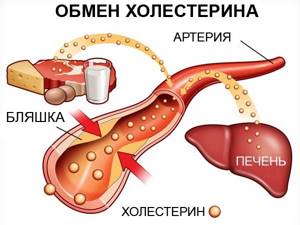
Cholesterol levels in women after 60 - 65 years
One of the most important indicators of health is cholesterol level, which exceeds the norm in women after 60...
Read the article >
For a clear understanding, we suggest considering an approximate and detailed diet menu for women after 60 years of age for 3 days:
| Breakfast | Lunch | Dinner | Afternoon snack | Dinner | |
| Monday | Vegetable salad, green tea, bread with a small piece of cheese | Kefir (200 ml), green apple | Greek salad, cheese soup, boiled meat and steamed vegetables | Orange | Cottage cheese casserole, herbal tea with honey and lemon |
| Tuesday | Omelet, bread, chicory | Hazelnuts (50 g), water | Salad with cabbage and carrots, chicken soup, baked white fish with vegetables | Freshly squeezed fruit juice | Vegetable casserole, natural yogurt, kiwi |
| Wednesday | Oatmeal with milk, green tea with honey | Fruits, water | Vinaigrette, boiled lean beef with buckwheat | Banana, tangerines | Fish soufflé, cucumber, tomato and fresh herbs, green tea with honey |
How to safely lose weight for an elderly woman with diabetes
It is important for all women - young and old - to remain beautiful and attractive. Therefore, excess weight gained due to diabetes often becomes a serious blow to a woman’s appearance and self-esteem, and sooner or later she comes to the conclusion that it would be nice to lose weight.
There is only one non-drug way to reduce the concentration of insulin in the blood: limit carbohydrates in your diet. In this case, the process of processing fat reserves will return to normal, as a result of which the person will lose weight, and for this he will not have to starve or make additional efforts.
Low-fat or low-calorie diets are not helpful for diabetics because they do not reduce carbohydrate intake, which affects insulin.
In the 1970s American doctor Robert Atkins developed a new diet for everyone who wants to lose weight - low-carbohydrate. It was actively popularized in his book “The New Revolutionary Atkins Diet”, the ten millionth copy of which was quickly sold out, and in media appearances. Such a high interest of people in the diet was explained by its effectiveness. This book was published, among other things, in Russian and contains a number of tips, when followed, extra pounds will go away, and the risk of developing type 2 diabetes in an elderly person is reduced to zero.
Older women diagnosed with diabetes have certain difficulties with weight. The hormone insulin, which in healthy people reduces the concentration of glucose in the blood and controls its absorption by the body's cells, works differently in diabetics. In the initial stages of the disease, insulin resistance occurs - a condition when there is a lot of insulin in the blood, but the metabolic reactions of cells are disrupted, glucose is not processed by cells and its level in the blood is also high. Insulin also accelerates the synthesis of proteins and fats and acts as an inhibitor on enzymes that break down fats, resulting in the formation of fat reserves.
Women who want to lose weight in old age when diagnosed with diabetes need to be prepared for the fact that the results will not be noticeable soon. Only after a long time will insulin-lowering nutrition have its effect and weight will begin to decrease. By the way, physical education and regular age-appropriate exercise also help you lose weight, as they have a beneficial effect on glucose and insulin levels.
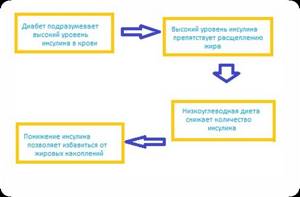
How to lose weight for an elderly person with a sedentary lifestyle
No one doubts the benefits of physical education, especially when it comes to gymnastics for older people. Such gymnastics should be regular and last at least 10-15 minutes daily. It may include breathing exercises, walking in nature and a standard simple morning exercise program, which is necessary to improve blood oxygen supply and train the body's muscles.
But, unfortunately, many older people have problems with mobility and cannot afford even light physical activity. However, even in this case, there is a way out for them: you can lose weight by changing your diet and removing high-calorie foods from it.
An elderly person should never starve or go without food for a long time! This will not help you lose weight! You should eat regularly in small portions, preceding each meal with a glass of water or a cup of green tea. This way of eating helps burn fat and improves blood composition. But here it is important not to overdo it with liquid: an elderly person needs about eight glasses of water (or other liquid) per day.
A person begins to lose weight when the amount of calories consumed is less than the amount spent. This happens even without additional physical activity. This seems to be the simplest way out: the less you eat and the less calorie-dense foods you choose, the less you weigh. But in practice, everything turns out to be somewhat more complicated: any diet and changes in nutrition are stress for the body, and the natural, genetically programmed reaction to stress in old age is precisely the accumulation of calories (and fat reserves in the body) for a rainy day. Therefore, an elderly person who suddenly goes on a strict diet risks gaining weight instead of losing weight. If it is not possible to adjust your weight through sports and gaining muscle mass, and you can only change your diet, then all radical options will definitely not work.
I would like to hope that this information will be useful to you and will protect you from mistakes in the field of weight loss. However, even if an elderly person failed to lose weight on their own, this is not a reason to despair and give up. The network of boarding houses for elderly people “Autumn of Life” has all the conditions and opportunities to help you lose weight to the desired weight. This includes medical supervision and carefully developed individual weight correction programs, care and adequate living conditions, and attentive attitude towards older people and their relatives. Helping older people solve various problems and making their lives rich and comfortable is our main task.
Tip #8: Reduce the amount of sugar and salt in your diet
Sugar is a simple carbohydrate that contributes to weight gain. Excessive consumption can disrupt carbohydrate metabolism and lead to the development of insulin resistance.
And salt, as you know, retains fluid in the body. Therefore, if you eat a lot of it (more than 10 g per day), edema will appear and blood pressure will increase, which for hypertensive patients is fraught with a hypertensive crisis. Salt is also harmful for people with diseased joints, as it is deposited in them and reduces their mobility.
It is advisable to eat no more than 5-7 g of sodium chlorine per day. For this:
- limit or completely eliminate pickled and canned foods;
- give up salty snacks (chips, salted crackers and nuts);
- do not use marinades, store-bought sauces and ketchups, processed foods, fast food, soy sauce, and salted fish.


